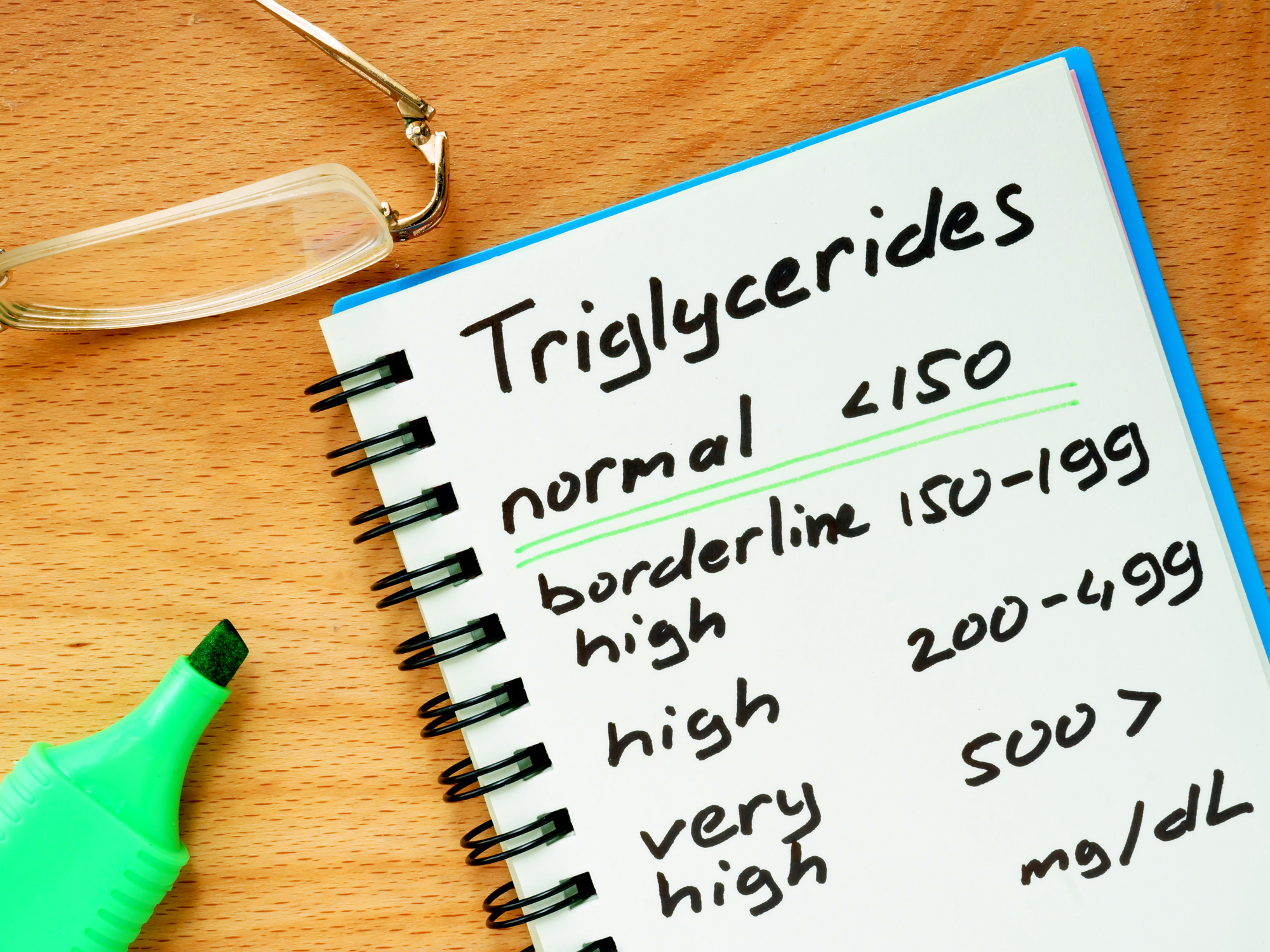Get Easy Health Digest™ in your inbox and don’t miss a thing when you subscribe today. Plus, get the free bonus report, Mother Nature’s Tips, Tricks and Remedies for Cholesterol, Blood Pressure & Blood Sugar as my way of saying welcome to the community!
4 ways to lower triglycerides without statins

Cholesterol does play a vital role in your body…
It’s important to all your cell membranes. It’s a precursor to your natural steroid and sex hormones. It’s needed to produce vitamin D and bile acids. And it’s also involved in healthy nervous system and brain function.
If you take a visit to your physician, common measurements of assessment include total cholesterol, triglycerides, LDL and HDL levels. It’s high total cholesterol, triglycerides and LDL that have long been associated with increased risk of heart disease. But HDL cholesterol is vital to the body, especially for optimal cardiovascular health. The special job of HDL is transporting LDL cholesterol and plaque buildup from the arteries back to the liver for breakdown.
Fortunately, triglycerides and LDL are aspects of your health that can be influenced from your very own your kitchen, using the great powers of nutrient dense foods…
#1: Eat more omega-3 fats.
Great sources of omega-3s include salmon, seafood, chia seeds, flax seeds and walnuts.
When participants were required to eat farmed Atlantic salmon twice per week in various portions — 3 ounce, 6.4 ounce, or 9.5 ounce — researchers found that HDL levels (the good stuff) increased and triglycerides significantly decreased.
And while their LDL stayed the same, there were more large LDL particles, which is a great thing because small dense LDL particles are the type that more readily oxidize and lead to heart disease and stroke.
#2: Eat phytosterols.
Some studies show that consuming two grams per day of phytosterols (also called plant sterols) can effectively lower LDL by 10 percent and may lower triglycerides by as much as 28 percent, particularly if you already have high triglycerides.
Related: Could the right food lower your heart disease risk better than meds?
Phytosterols can be found in vegetable oils, cereals and are often added to margarines and other consumer products. However, it’s best to get your phytosterols from nuts and seeds, along with fresh fruits and vegetables.
#3: Increase your dietary fiber.
Dietary fiber helps lower your triglyceride levels in three ways:
- By decreasing bile salt absorption in the small intestine, which results in the liver using available cholesterol to create bile acids and as a consequence lowers LDL.
- Viscous dietary fibers (such as asparagus, Brussels sprouts and legumes) slow the rate at which sugar/ glucose is absorbed. This reduces insulin concentrations, which subsequently decreases the liver’s synthesis of cholesterol.
- Dietary fiber fermentation in the large intestine leads to the production of short chain fatty acids, which reduces the liver’s synthesis of cholesterol.
Fiber is found in a wide variety of plant foods and you need both soluble and insoluble to gain all the benefits.
Soluble fiber sources include psyllium husks, artichoke, asparagus, winter squash, Brussels sprouts, broccoli, onion, carrots, beans, legumes, blueberries, and nuts.
Related: Stents don’t work
Insoluble fiber sources include spinach, Brussels sprouts, broccoli, winter squash, bran, and flaxseeds, among other fruits and veggies.
Your fiber intake should be at least 25 to 35 grams per day.
#4: Snack on a handful of nuts each day.
Studies have shown that tree nuts — think almonds, walnuts, pistachios, macadamia nuts, pecans, and Brazil nuts — may reduce your total cholesterol by 4.7 mg/dL, your LDL cholesterol by 4.8 mg/dL, and your total triglycerides by 2.2 mg/dL. This effect is strongest when around two ounces of nuts are eaten on a regular basis.
Editor’s note: While you’re doing all the right things to protect your brain as you age, make sure you don’t make the mistake 38 million Americans do every day — by taking a drug that robs them of an essential brain nutrient! Click here to discover the truth about the Cholesterol Super-Brain!
Sources:
-
Chen G, et al. Nutraceuticals and functional foods in the management of hyperlipidemia. Critical Reviews in Food Science and Nutrition. 2014;54(9):1180-1201.
-
Del Gobbo LC, et al. Effects of tree nuts on blood lipids, apolipoproteins, and blood pressure: systematic review, meta-analysis, and dose-response of 61 controlled intervention trials. American Journal of Clinical Nutrition. 2015;102(6):1347-1356.
-
Raatz SK, et al. Twice weekly intake of farmed Atlantic salmon (Salmo salar) positively influences lipoprotein concentration and particle size in overweight men and women. Nutrition Research. 2016;36(9):899-906.
-
Rideout TC, et al. Triglyceride-lowering response to plant sterol and stanol consumption. Journal of AOAC International. 2015;98(3):707-715.













